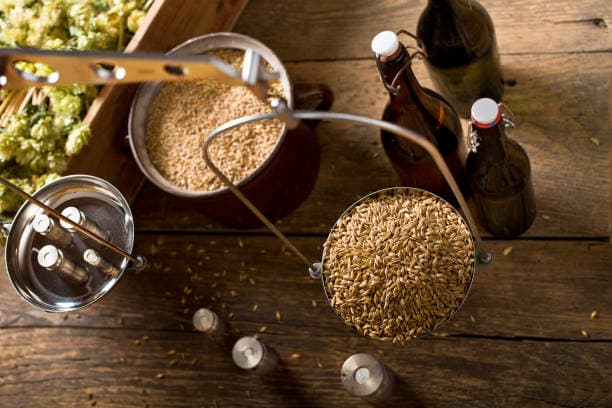Want to know how to make beer? This guide is for you. There is nothing quite like the taste of a cold, refreshing beer on a hot day. And, as any homebrewer will tell you, there’s nothing quite like the satisfaction of brewing your own beer at home. In this article, we will walk you through the process of how to make beer from scratch.

We’ll cover everything from selecting the right ingredients to bottling and carbonating your brew. So whether you’re a beginner or an experienced homebrewer, read on for tips and tricks that will help you craft the perfect batch of beer every time!
What is Beer?
Before we dive into details about how to make beer, let’s first touch on the basics of what exactly beer is. Beer is a fermented alcoholic beverage made from grain (typically barley), hops, yeast, and water. The grains are ground and mixed with hot water to create a mixture called “mash.”

This mash is then strained to separate the liquid, or “wort,” from the solids. Hops are added to the wort for flavor and natural preservatives, before being boiled and cooled. Yeast is then added, causing fermentation and creating alcohol.
Choosing Your Ingredients
One of the great things about homebrewing is that you can customize your beer however you like by selecting different grains, hops, and yeast strains. Consider the type of beer you want to make – do you prefer a hoppy IPA or a malty stout? Once you have an idea of the style, research different types of grains, hops, and yeasts that will help achieve your desired taste and aroma.
Equipment
In addition to ingredients, there are a few key pieces of equipment that you will need to brew your own beer at home. This includes a large pot for boiling the wort, a fermenter and airlock for fermentation, bottles or kegs for storing and carbonating the finished beer, and various tools such as a thermometer, hydrometer, siphon, and bottle capper. A small beer fridge is also recommended. Let’s see how to make beer below.
How To Make Beer: Step-by-Step Guide
So, here are the steps for how to make beer at home. Follow all the steps given below carefully and you will be done. The following are the basic ingredients required for brewing beer:
- Grains (typically barley, but can also include wheat, oats, and other grains)
- Hops
- Yeast
- Water
- Sugar
There are also many additional ingredients that can be added to flavors, such as fruits, spices, or even chocolate.
1. Preparing the Grains
First, the grains need to be “mashed,” or ground and mixed with hot water to extract their sugars. This can be done by either purchasing pre-crushed grains or crushing them yourself using a grain mill. The mash should then be heated to between 150-160 degrees Fahrenheit and held at this temperature for about an hour.
2. Boiling the Wort
Next, the mash is strained to separate the liquid wort from the solids. The wort is then boiled with hops for about an hour to add flavor and natural preservatives. At this point, any additional ingredients such as fruits or spices can also be added.
3. Cooling and Fermenting
Once the boiling is complete, the wort needs to be cooled before yeast can be added. This can be done by placing the pot in an ice bath or using a wort chiller. The cooled wort is then transferred to a fermenter and the yeast is added, causing fermentation and creating alcohol. The beer should be left to ferment for about two weeks.
4. Bottling and Carbonating
After fermentation is complete, the beer can be transferred to bottles or kegs for storage. Adding a small amount of sugar at this point will create carbonation in the bottle or keg. The beer should be left to carbonate for about another week before it is ready to drink.
And there you have it – your very own homemade beer. Experiment with different ingredients and techniques to perfect your homebrewing skills and create unique and tasty beers. Cheers! Also, see this Beer Bottle Bong DIY guide.
How To Make Beer Taste Better?
Don’t like the regular taste of your homemade beer? Here are some tips to improve the flavor:
- Use high-quality ingredients
- Use proper sanitation techniques to avoid contaminating the beer
- Conduct a secondary fermentation or “conditioning” period
- Experiment with different types of grains, hops, yeasts, and additional flavors
- Practice and improve your brewing techniques
Conclusion
Was that simple or what? You now know how to make beer at home by following these basic steps. The best thing about homebrewing is that you can customize your beer however you like, so don’t be afraid to experiment with different ingredients and techniques. Happy brewing! Stay in touch with Chillbeer.net for more informative guides.